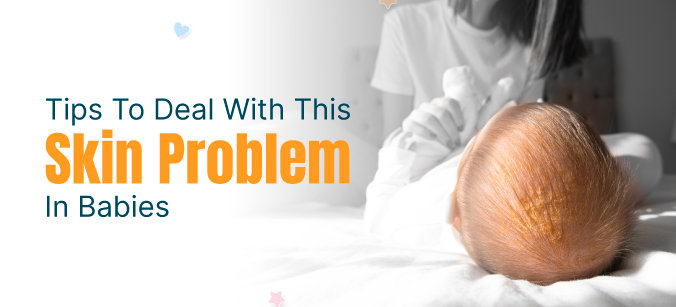- Home
- Blog
- Mom & Baby Care
Food to Reduce Infertility Rate in Women’s
Mom & Baby Care
Food to Reduce Infertility Rate in Women’s
By - 26 December 2022, Updated on -03 January 2023
Share this article
0
1 like

Infertility is the inability of the male or female reproductive system to achieve pregnancy. It affects millions of people worldwide. According to the World Health Organization (WHO), approximately 48 million people live with infertility globally.
What exactly causes infertility?
Infertility may be caused by numerous factors.
Biological factors contributing to female infertility include;
Blocked fallopian tubes
Untreated sexually transmitted infections (STI’s) leading to fallopian tube blockage
Uterine disorders like endometriosis
Congenital disorders like septate uterus
Polycystic ovarian syndrome
Endocrine disorders
Environmental and lifestyle factors that may promote female infertility include;
Smoking
Excess alcohol
Obesity
Environmental pollutants and toxins
Infertility contributes to a negative impact on the lives of infertile people, especially women. Women often experience challenges like marital conflicts, divorce, emotional stress, depression, and social stigma due to fertility issues.
How is infertility treated?
Infertility is treated using medicines and assisted reproduction technologies (ART) like invitro fertilization (IVF). Although these treatments have been available for a long time, their availability, accessibility, and quality remain a problem in many countries.
Is there anything women can do to boost their fertility? Yes. There are many ways to boost female fertility naturally. However, if the infertility is caused by genetic factors or some medical condition, it may not be cured.
Ways in which women can boost their fertility:
Bring in the multivitamin – Vitamins are essential for our overall health. Folate or vitamin B9 plays an important role in female fertility. It aids red blood cell formation and prevents the birth defects of the brain and spine.
Including multivitamin supplements such as Zincovit, GNC women’s once daily multivitamin, Revital H, Apollo life multivitamin for men and women, Maxirich multivitamin, OZiva women’s daily multivitamin, etc. In your life can ensure your need for essential elements are met.
Head to your closest Apollo Pharmacy store to shop for these multivitamins.
Get moving – Moderate physical activity may positively impact fertility in women.
Deep breaths to destress – Stress may affect your hormones thereby decreasing your fertility. Try to relax by performing deep breathing.
Say no – Say no to caffeine and alcohol. Caffeine may affect fertility, so limit your caffeine to 1 or 2 cups per day. Avoid alcohol completely as it hampers your fertility.
Have regular check-ups scheduled with your gynecologist once you are sexually active.
The food that we eat also plays a crucial role in our health and well-being. Did you know that by choosing certain foods in your diet you could actually boost your fertility? Check out the following foods that can improve your fertility and your chances of getting pregnant.
Foods to improve female fertility:
- Green leafy vegetables – Vegetables like cabbage, spinach, broccoli, and kale are loaded with the goodness of vitamins A,C,E,K, and antioxidants along with folate which is important in conception as it helps in the DNA duplication in the eggs and the sperms.
- Something is fishy – Oily fish like salmon, sardines, and mackerels are rich sources of omega-3-fatty acids like Docosahexaenoic acid (DHA), which helps in the baby’s brain development during pregnancy.
- Wink with Zinc – Zinc is important for cell division, thus influencing the egg development and conception. Add these zinc-rich foods like shellfish, pumpkin and chia seeds, nuts like almonds, cashews, and walnuts, and beans, lentils and mushrooms to your diet.
- Go for complex food – Choose whole grains instead of refined grains found in white bread and pasta as these can disrupt your blood sugar and thus affect your reproductive hormones. Choose whole grains like wheat, quinoa and buckwheat which have vitamin B6, that helps to generate hormones and strengthen the uterine lining.
- Have some protein – Proteins helps to build our hormones and balance the blood sugar. They also support the baby’s development.
- Avocado – It is rich in folate, potassium, and carotenoids which help in pregnancy. Its monounsaturated fatty acid content helps to reduce the risk of insulin resistance and hypertension in women who are trying to get pregnant.
- Olive oil – It helps to control polycystic ovarian syndrome (PCOS), which is the leading cause of female fertility. Its phenolic compounds reduce inflammation and uterine hypercontraction.
- Grab that fruit – Citrus fruits like oranges and lemons are loaded with vitamins C, and B, which can reduce ovarian inflammation and thus reduce the effects of PCOS. Quercetin is another active flavanol found in these fruits which helps in the in-vitro maturation of oocytes to increase overall fertility.
Infertility is not inevitable if you can change your lifestyle and diet. Choose wisely to improve your fertility and your chances of conception.
Services
Mom & Baby Care
Leave Comment
Services
Recommended for you

Mom & Baby Care
Improving the digestive health of mothers
The digestive patterns of aging women change over time and may have an impact on gut health. Overall, the gut health of a mother can be improved by understanding the importance of digestive health and eating foods that promote good digestion. #ApolloPharmacy #HealtheirGut #GoodDigestion #CareForMother #WorldDigestiveHealthDay

Mom & Baby Care
Patchy Scalp Of Babies: Know How To Deal With It
Cradle cap, also known as congenital seborrheic dermatitis, is an itchy, scaly skin on newborns' scalps, eyebrows, and eyelids. Check out this guide to find out precisely what is cradle cap and how you can treat it!

Mom & Baby Care
Tips For Managing Postpartum Depression And Anxiety
The article discusses postpartum depression and anxiety, its common signs and symptoms, and coping strategies for new mothers to manage this mental health condition. It emphasizes seeking support from loved ones and professional help when needed.
Subscribe
Sign up for our free Health Library Daily Newsletter
Get doctor-approved health tips, news, and more.

